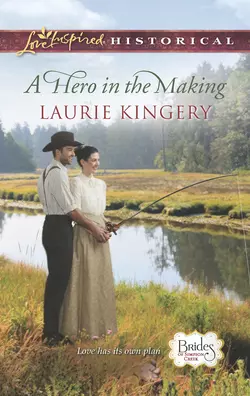A Hero in the Making

Laurie Kingery
Тип: электронная книга
Жанр: Современная зарубежная литература
Язык: на английском языке
Стоимость: 458.46 ₽
Статус: В продаже
Издательство: HarperCollins
Дата публикации: 16.04.2024
Отзывы: Пока нет Добавить отзыв
О книге: Man on a Mission…Nate Bohannan won′t let anything stand in the way of his grand plans in California. Even if it means traveling there with unreliable huckster Robert Salali. But after a destructive bender in Simpson Creek, Texas, the unscrupulous Salali runs out, leaving Nate to carry the blame–and the debt. He can fix broken furniture…but can anything fix the despair in café owner Ella Justiss′s eyes?When her café was destroyed, Ella felt sure she′d lost her dreams along with it. Yet somehow Nate′s cheerful care and optimism fill her with hope again. Painful secrets from her childhood make Ella wary of men. When danger threatens, will Nate be the hero Ella can finally trust–and love?Brides of Simpson Creek: Small-town Texas spinsters find love with mail-order grooms!